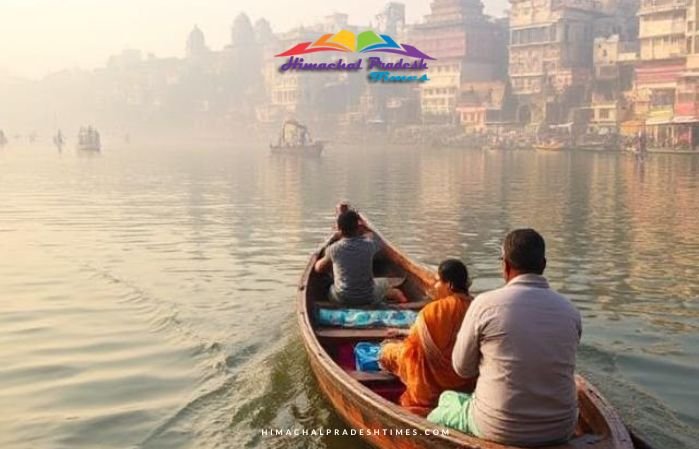Vijayadashami or Dussehra is one of the most auspicious festivals observed in India. It is the triumph of the good over the evil, and it has huge cultural and spiritual significance. The festival comes after the huge celebrations of Navratri and Durga Puja, which unite communities in happiness, piety and cultural celebrations. The year 2025 will be a year of fervour in marking Dussehra in the country. Here are the finer details of the date, muhurat, significance, celebrations and future Dussehra holidays.
About Dussehra
Dussehra festival is an Indian festival named after the Sanskrit word Dashami, and happens on the tenth day of the Shukla Paksha (bright lunar fortnight) of the month of Ashwin, typically during September or October.
There are two commonly known stories of the festival:
· In northern India, it celebrates the victory of Lord Rama over Ravana, which symbolises the victory of righteousness.
· In eastern India, it overlaps with the end of Durga Puja, which glorifies the triumph of Goddess Durga over the demon Mahishasura.
Such stories highlight the universal theme of Dussehr, namely that of good conquering evil.
Dussehra 2025 Date and Muhurat
Dussehra will be celebrated in 2025:
Date: Friday, October 3, 2025
This is the last day of the nine-day-long Navratri festival and is celebrated by using pujas, processions, cultural activities and rituals throughout India.
Vijaya Dashami Muhurat (Aparahna Puja Time).
Hindu tradition dictates that the practice of puja on the Aparahna day of Dashami Tithi is very important.
#1. Vijayadashami Aparahna Puja Muhurat: 1:47 PM -4:07 PM (IST)
#2. Dashami Tithi Starts: 2:42 PM October 2, 2025.
#3. Dashami Tithi Concludes: 12:31 PM on October 3, 2025.
Rituals are advised, and particularly Shami Puja, Aparajita Puja, and Seema Avalanghan to be performed at this time.
Significance of Dussehra
Dussehra is not a festival in itself, but a glorification of eternal principles:
1. Victory of Good Over Evil: The victory of Lord Rama over Ravana is the one that makes the people live in accordance with righteousness and truth.
2. Feminine Power: The act of Goddess Durga killing Mahishasura represents the power of strength, bravery, and divinity with the female energy.
3. Cultural Heritage: The festival unites the old art forms such as Ramleela performances, dance dramas, and music.
4. Spiritual Cleansing: It teaches people to overcome inner evils such as ego, anger and greed.
The way people celebrate Dussehra.
The celebrations of Dussehra differ in various parts of the world and are united with one common spirit of piety and celebration.
- Ramleela Performances: Ramayana enactments are also practised in the theatres of northern India, and giant effigies of Ravana, Meghnath and Kumbhkaran are burnt.
- Durga Visarjan: Durga Puja ends with Dussehra in West Bengal and other states of the east and is characterised by the huge immersion of idols in rivers and lakes.
- Shami Tree Worship: Shami tree worship is practised in some areas in western India, and its leaves are given as a symbol of prosperity and wealth.
- Processions: In India, the streets are filled with colourful processions with idols of deities, music and dance.
- Feasting: In families, they come together to cook and eat festive food and enjoy togetherness.
Why Do We Celebrate Dussehra?
Dussehra is all about the universal message:
This was meant to remind people that no matter how powerful evil is, it is bound to lose.
#1. The promote society in following dharma (righteousness) and truth.
#2. To worship the feminine divine force, which is represented by Goddess Durga.
#3. To promote unity and cultural affiliation due to common rituals and celebrations.
Celebrating Dussehra
The observance of Dussehra may be a combination of tradition, religiousness and contemporary party:
#1. Visits to Temple: Praise lord Rama or Goddess Durga.
#2. Community Events: Attend Ramleela shows, fairs and cultural events.
#3. Home Rituals: Perform puja, light diyas and cook festival food.
#4. Acts of Generosity: Give food, clothes or sweets to those who are in need, and strengthen the culture of being good.
Durga Puja Holidays 2025
Durga Puja, an important festival that precedes Dussehra, is celebrated with great pomp in eastern India. Here are the dates of Durga Puja in 2025:
#1. Mahalaya: September 27, 2025
#2. Shashthi: September 30, 2025
#3. Saptami: October 1, 2025
#4. Ashtami: October 2, 2025
#5. Navami: October 2–3, 2025
#6. Vijayadashami (Dussehra): October 3, 2025.
Pujas, rituals, pandal hopping, cultural events, and other related activities characterise these days, making it one of the most anticipated festive holidays.
Best Places to Spend 2025 Dussehra Holidays.
Making a holiday plan to spend Dussehra holidays in a festive getaway can be a good memory. The following are some of the popular destinations:
1. Varanasi, Uttar Pradesh: Watch big Ramleela shows and effigy burning festivals.
2. Kolkata, West Bengal: Take a stroll in the artistic splendour of the Durga Puja pandals and festivals.
3. Mysuru, Karnataka: Watch royal processions, lit-up palaces and cultural displays in the world-renowned Mysuru Dasara.
4. Delhi: Take pleasure in the grandiose Ramleela shows and Ravana effigy burnings within the grounds of the iconic.
5. Ahmedabad, Gujarat: Celebrate the colourful Garba and Dandiya festival on the occasion of Navratri preceding Dussehra.
Future Dussehra Dates: 2026–2029
Dussehra dates for the forward-looking, the following are the Dussehra dates:
#2026 Dussehra: Tuesday, October 20, 2026
#2027 Dussehra: Saturday, October 9, 2027
#Dussehra 2028: Thursday, 28 September 2028.
#Dussehra 2029: Tuesday, October 16, 2029
Conclusion
Dussehra 2025 is not only a religious festival, but it is also an occasion that brings India together in its own diversity.
Be it in the form of Ramlila plays, Durga idol immersion, or royal processions, this festival still gives us the message that good always triumphs over evil.
Set October 3, 202,5 in your calendar and observe Dussehra with spirituality, happiness and unity.






